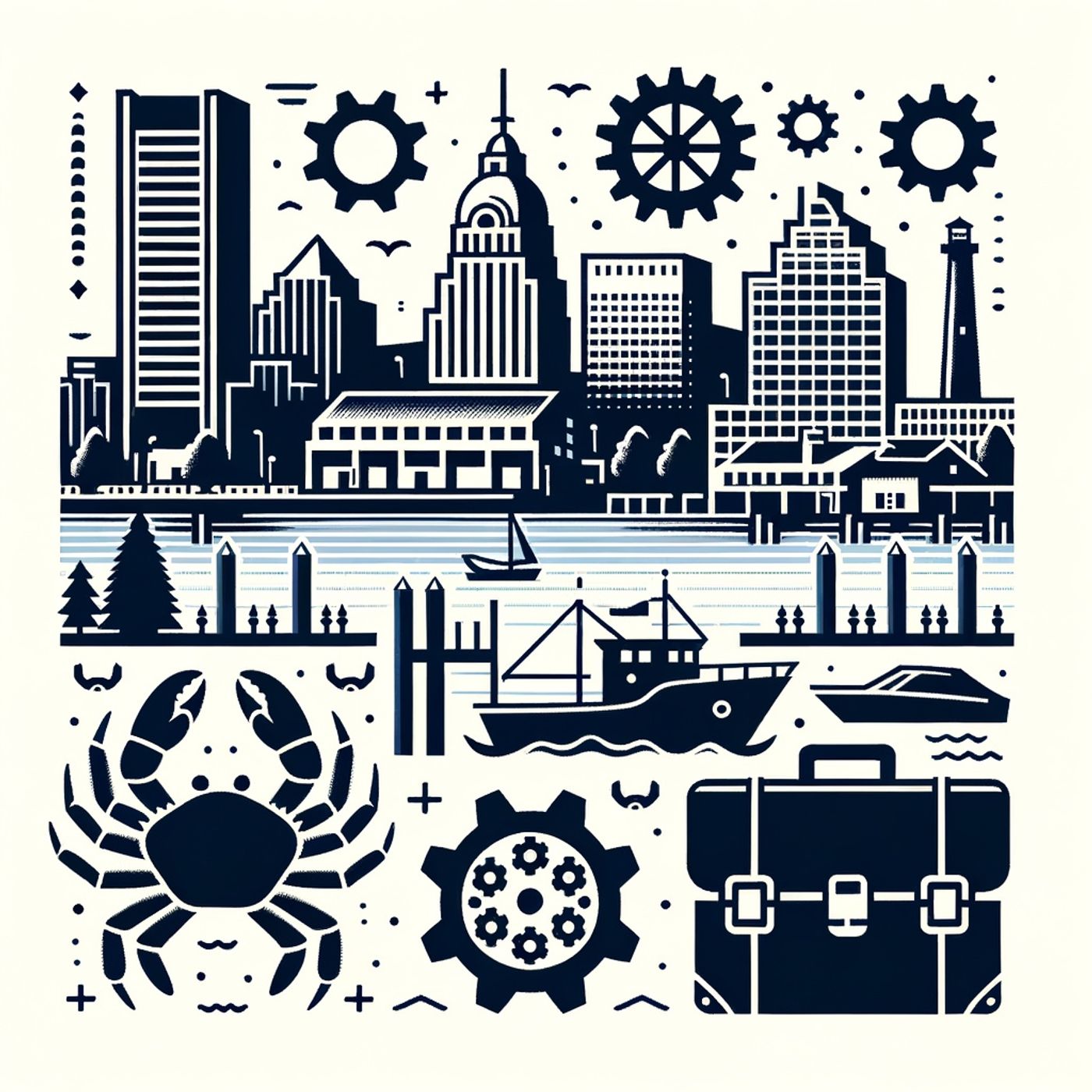Listen "Baltimore's Job Market: Resilience Amid Challenges in 2025"
Episode Synopsis
The job market in Baltimore as of October 2025 reflects both resilience and recent challenges, according to insights from public sector job portals, local economic news, and employment data. Baltimore’s employment landscape is shaped by its status as a major urban and logistics hub in the mid-Atlantic, with government, healthcare, education, logistics, and financial services among the city’s primary employers. Notably, the Social Security Administration is the largest employer in Baltimore County, and the Port of Baltimore remains a critical driver of jobs in marine logistics, distribution, and related services. According to recent statements by Baltimore County’s senior deputy administrative officer cited by WYPR, unemployment in the county has increased by 0.8 percentage points over the last three months, amid concerns over federal fiscal uncertainty and the impact of a government shutdown. As reported by CoStar, the national unemployment rate in August was 4.32%, virtually unchanged from a year prior, but the local figure in Baltimore may be slightly higher given the recent uptick in jobless claims and sluggish private-sector hiring, as payroll processor ADP registered a drop of 32,000 jobs nationwide in September. Within the city, employment opportunities are broad, with significant hiring in public safety, health care, compliance, and education, as seen on the State of Maryland job portal. For example, three current openings in Baltimore include Executive Director of Intake Services at DJS Community Operations, Chief of Fiscal Services at the Maryland Physicians Board, and Special Education Interagency Specialist at MSDE. Healthcare and social services continue to be growth sectors, especially as local government agencies and hospitals fill critical service gaps. Meanwhile, marine logistics is expanding, with companies like LOGISTEC investing in new technologies at the Port of Baltimore to drive efficiency and diversify cargo handling capabilities, positioning Baltimore as an essential gateway for North American supply chains. However, labor market growth has decelerated, with fewer job postings, extended job search times for many, and more cases of long-term unemployment, especially among younger and less experienced workers. The Baltimore labor market is further influenced by seasonal trends such as increased temporary hiring during the winter holidays but overall reduced consumer spending projections for late 2025, according to CoStar. Commuting remains dominated by road and rail, aided by the city’s infrastructure and public transit, though no significant new patterns are reported this quarter. In terms of government response, Maryland has moved to fund some federal programs during the ongoing shutdown, while encouraging affected workers to access unemployment benefits in their respective jurisdictions, as covered in Maryland Reporter. The fiscal environment has triggered critical reassessments of major public investments, such as new library branches, with local governments tightening budgets. As the labor market adapts to technological change, automation, and AI, job seekers face more stringent requirements for experience, especially in technology and logistics. Key findings are that Baltimore’s job market remains diverse and adaptive, driven by stable government, healthcare, and logistics sectors, but faces short-term headwinds from federal fiscal pressures, slow hiring, and the effects of automation. Listeners interested in public service will find active and well-compensated vacancies in city agencies and health services. Thanks for tuning in, and don’t forget to subscribe. This has been a Quiet Please production, for more check out quiet please dot ai.For more http://www.quietplease.aiGet the best deals https://amzn.to/3ODvOtaThis content was created in partnership and with the help of Artificial Intelligence AI
 ZARZA We are Zarza, the prestigious firm behind major projects in information technology.
ZARZA We are Zarza, the prestigious firm behind major projects in information technology.
